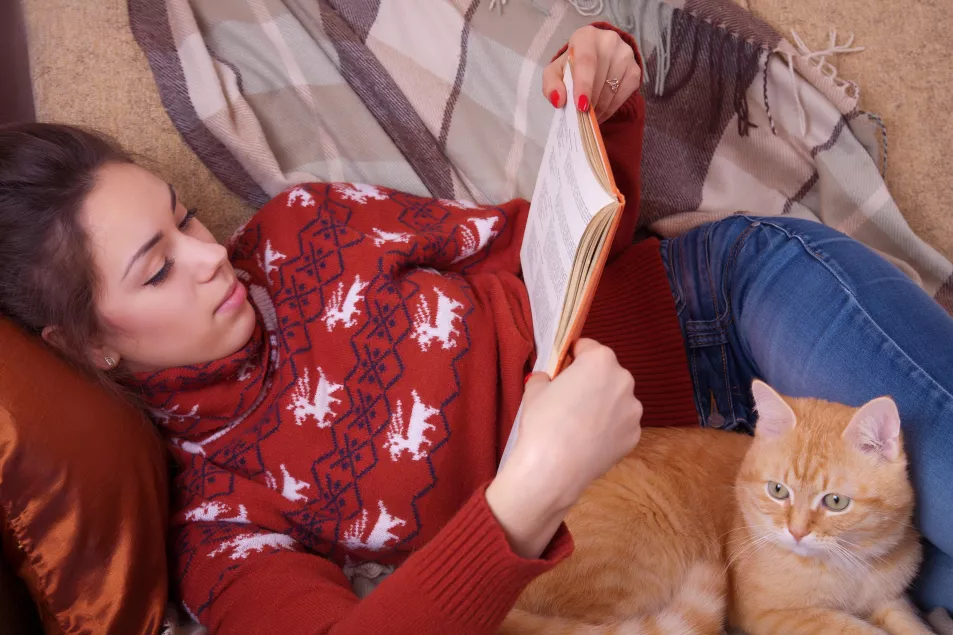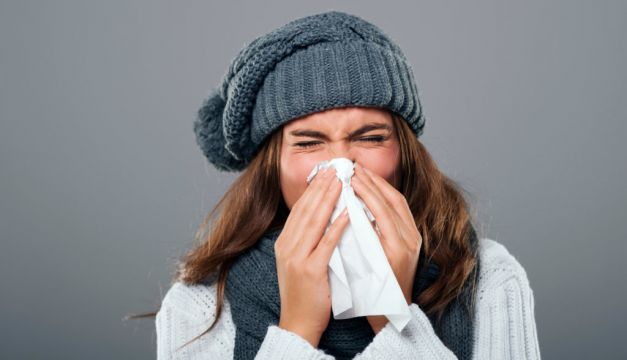Already feel like you’ve had your fill of sore throats, coughs and stuffy heads this winter? Colds may be common and minor – but they can still leave you feeling rotten, not to mention being a major inconvenience.
They aren’t really something you want to be traipsing to the GP surgery with however – but wouldn’t it be helpful to know what your doctor really thinks about managing winter ailments? We asked them…
Getting ill is not always terrible
Nobody enjoys having a cold, of course. But GP and TV medic Dr Hilary Jones – known for regular appearances on Good Morning Britain – says we can’t always “prevent exposure to viruses, especially in winter when people flock together for warmth indoors”. And if symptoms are mild, we probably don’t need to worry too much.

“Let your own immune system deal with it,” says Jones. “That’s what your immune system is for – and looking on the positive side, the more you tickle up your immune system, the healthier it is. In a way, you’re stimulating your immune system to be healthy.”
Antibiotics can be harmful if you don’t actually need them
If symptoms are proving tougher to tolerate, it can be tempting to try antibiotics. But while there are certainly times when antibiotics are vital, they only work for bacterial infections, so taking them when you have a viral infection (ie a cold) is not only futile, but could cause harm.
“Often, both clinicians and patients will be tempted to try antibiotics, even when there is little-to-no chance of them helping – ‘just in case’ and often accompanied with the reasoning of ‘what harm can it do?’,” says Dr Tom Jenkins, a GP.
“We are now beginning to appreciate that there is potential harm at an individual level,” Jenkins adds. “There are more bacterial cells in the human body than human cells, and most of those bacterial cells are helpful and essential for healthy functioning. Because antibiotics are not selective and do not single out just bad bacteria, taking them upsets our bacterial microbiome, and we are now starting to learn about the subtle and sometimes lasting consequences of this.”
Another major concern is bacteria becoming resistant to antibiotics – which the World Health Organisation (WHO) describes as one of the biggest threats to global health today. Tackling this is complex but on an individual level, WHO guidelines suggest people only use antibiotics when suitable.
Soothing home remedies are worth it
Jones also points out: “If you do get sick, comforting symptomatic relief is really important, starting with the simple things. I’m an advocate of manuka honey – the genuine manuka honey from New Zealand, which carries a number for the antibacterial activity, the MGO methylglyoxal.”

As well as its antibacterial properties, Jones says it’s “soothing for throats” and can provide an “energy boost” – plus his 97-year-old mother is a fan. “Not only does she put it in her porridge, she put it on her skin for a few lesions that she has – perfectly well-endorsed by the district nurse who comes to visit her as well.
“You can also put honey in a grog, in hot water, with a bit of lemon, a bit of cinnamon – that’s something our grandmothers used to use, and to good effect.”
Diet and lifestyle do play a part

“Diet is always important,” says Jones. “A healthy lifestyle does protect us and helps our immune system. Clearly there are obvious things not to do – smoking and excess alcohol – as well as poor nutrition.
“We know vitamin D is important for good immune health, and there are many people who are deficient in vitamin D, who should be taking a supplement as recommended by the WHO, particularly through winter,” Jones adds (when there isn’t enough sunlight in this part of the world for our bodies to make sufficient amounts). “So vitamin D, adequate vitamin C, zinc, and sometimes things like garlic and echinacea can be helpful in making sure your immune system is healthy.”
While a balanced diet comes first, Jones believes “it’s always worth considering a multivitamin, which gives you a little bit of everything, particularly if your diet is restricted or selective in any way or if you’ve got extra needs”, he adds.
“But healthy eating, plenty of fruit and vegetables, adequate protein, exercising moderately and avoiding pollutants and cigarettes – those are the main things.”
Check in with your doctor if you’re constantly feeling run down
Still feel like nothing seems to help? Then it may be time to check in with your doctor. “If you’re concerned that you have any possible underlying medical problem, I would always advise discussing matters with your GP,” says Jenkins.
“Sometimes recurrent infections can be a sign of an underlying infection, but sometimes they can be because you are rundown. Your GP is ideally placed here because they have your medical record, are able to look into things in more detail, and can follow you up.”







